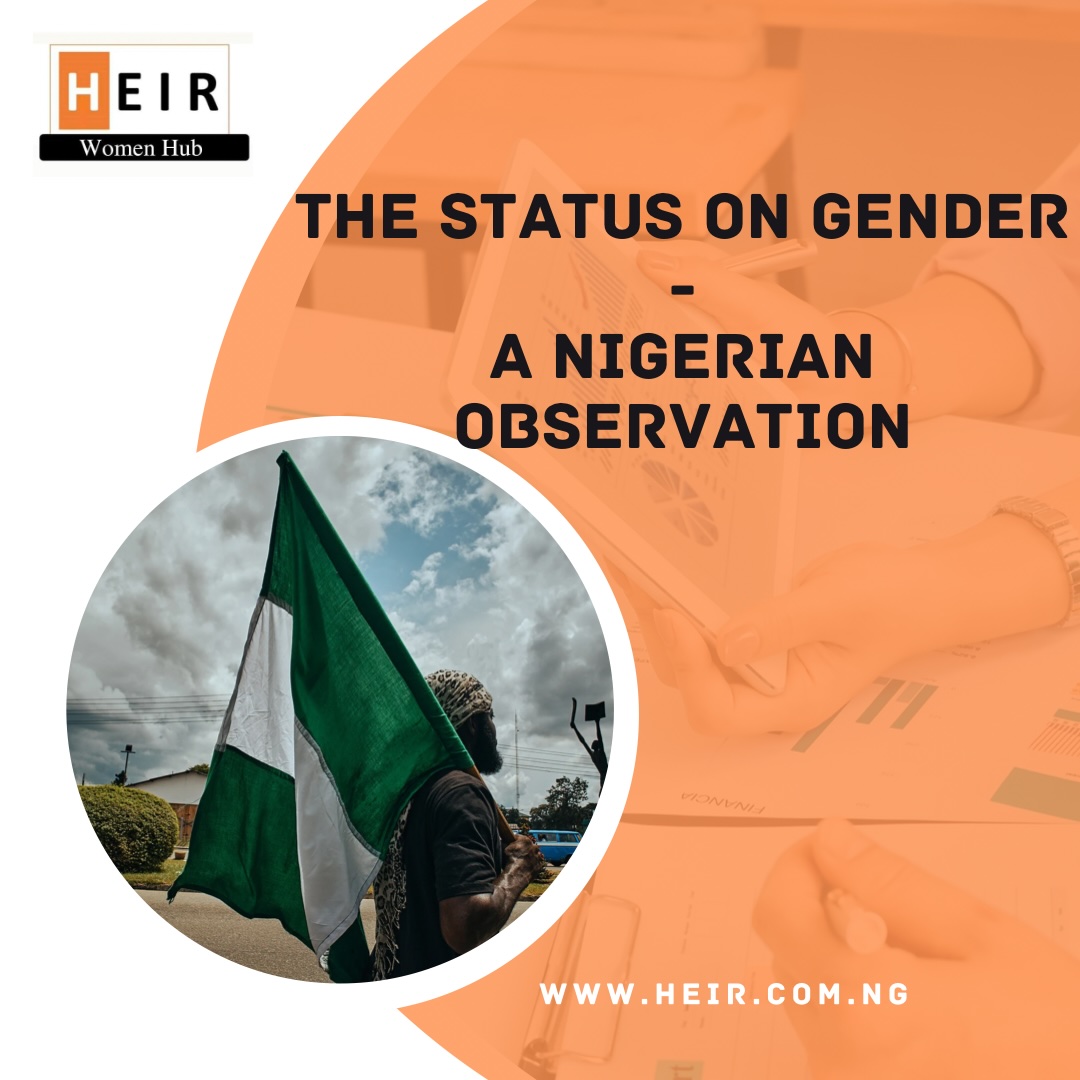
There is no conversation about Nigeria that will not contextualise the colonial influence on the way of living that the locals had prior to the interruptions. Like many colonised African Nations, Nigeria was not defined by roles and bodies, not defined by domesticity and capitalism until European came and dismantled the culture which is still impacting the lives and population. One of such change was Gender construction. This enabled the colonisers categorise, dominate, rule and discipline the people. Gender is a created terminology that separated women from men in behaviour, privilege, role, mindset, stereotypes and respect. It goes on further to assign societal expectations to the created roles so that the person can be measured against a set of standards that is also endorsed by the State.
Nigeria not only adopted this term – Gender- the assigned roles of men and women by the Europeans, became law. A Nation, rich in Oil, governing herself, men and women living and doing what created success for them, changed to a Nation, living with a tussle for power and poverty for majority of the citizens. Gender was used to govern people and identities, with shame and discipline as reward for non-conforming bodies.
Gender Status Today
Nigeria has very many educated women and men who reach the very top of academic and professional standards across the world. When a term gets transferred into the Nation’s body of knowledge, there is pandemonium- literally. Gender – a term constructed to represent women and men, is interpreted to mean mostly women. Conversations along gender lines have a disturbing assumption that when Gender is mentioned, women are the only recipients. Gender has transitioned into a negative review for categorising women’s bodies, Gender had long been feminised. Nigeria has many institutions that have written and imbibed Gender term to also mean women. Hence, the material outcomes will equal the understanding of the situation.
An intention that came with Gendering from the European colonisers, was to impose the Western ways of living and thinking, onto the locals. So such behaviours like domestication, is a Victorian lifestyle, practiced by the women in Europe. Women were marginalise and kept to be dutiful in the home, not doing anything order than keeping house, while pressure mounted on the men to earn wages through labour. A society that was not “obviously” categorised into “men must do this” and “women must do that” now became a society with a “painful” experience in gender performance and acceptability. The gender status today has been robbed of the ideal frame Nigeria is entitled to. Positions that can benefit our country irrespective of what body is in that decision making role, has been taken away. We live in a society that has not harnessed the immerse potential available due to the misnomer of leadership in understanding and representing Gender, applying the right framework and solutionising for impact.
Moving Forward
Gender is not only women. Gender is everyone! Men and Women. If we must use this frame of reference, we must be accountable to use it accurately. Gender is a doing term. Looking into marginalisation and oppression has to be done through a Gender lens meaning, looking into what and how this issues impact men and women. None should be more important than the other however, due to a problem presentation, for example, maternal health, women carry pregnancies and can loose life, hence, will be prioritised in data analysis to determine causation, prognosis and factors impacting this data but men need to be carried along because they are involved in the creation of the child and should be involved in the wellbeing, men would require education and information to support a better implementation of maternal health solutions. Maternal health isn’t a woman’s problem or according to today’s framing of Gender “a gender problem; it is a Nations problem and an issue that requires inclusive education and solutions. Institutions of healthcare should include women and men in positions to lead effectively for a more inclusive policy and governance around healthcare systems. Everyone should be represented in the decision table. That’s how this should look like when Gender is accurately defined, framed, contextualised and applied. Now, re-imagine an accurate presentation of a problem across diverse issues and sectors with the right representation of gender in the problem unpacking process? A huge deviation from the norm will occur when we frame and contextualise, with data analysis to back it up for better solutions and implementation. Utilising gender lens promotes an inclusive way of strategic thinking.
While the imposition of gender on our Nation had negative intentions, we can transform this into a positive change and utilise it as a “check” on meeting the needs of us all- men and women. The Gender ideology we have today should be challenged so that as a concept, it can be used to transform our society to be inclusive of the representation of us all.
I strongly recommend that Institutions such as – National Orientation Agency, National Human Rights Commission, Nigerian Educational Research and Development Council, Universal Basic Education Curriculum and the Federal Character Commission should engage in the re-education of what it means to be Gender Accountable for better Governance in our Systems and Structures. We need to move the needle on inclusion – begin accurate framing and conceptualisation of Gender Understanding in our Nation.
Añuli Aniebo
